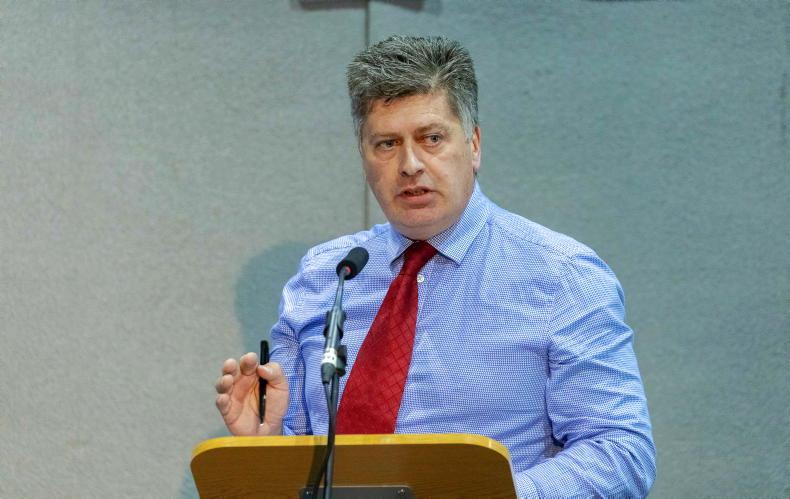There was a surprising absence of any sense of occasion at the first meeting of the 100% farmer-owned Glanbia Co-op last week.
The business has come full cycle from the amalgamation of the old Waterford and Avonmore entities: the flotation of part of the business onto the stock exchange and now the emergence of the biggest milk and grain purchaser in the country in full farmer ownership as well as owning over a third of the quoted plc with its international business.
Apart from quickly getting through the formal business of minutes, reports from chairman and chief executive etc, the meeting mainly concentrated on the position of dairy farmers who had availed of the fixed milk price scheme.
I hadn’t realised that as many as 500 farmers had taken up this scheme and effectively sold their milk forward at a fixed price well in advance of having produced the milk.
They find themselves producing milk at today’s higher costs but only receiving last year’s or even the year before’s prices.
Given how costs have escalated it is not surprising that affected farmers are hurting, and the bigger the proportion of milk they have forward sold, the greater the loss.
History repeated
As I listened to the genuine anguish some were going through, my mind went back many years to the 1970s, to another case of optimistic forward selling, when Cork Marts owned the country’s two leading meat plants in Leixlip and Grand Canal Street in Dublin.
They entered into a deal with Israel to sell an enormous quantity of forequarter beef.
It looked to be the perfect arrangement as Cork Marts / IMP would be left with the more valuable hindquarters. But it all went disastrously wrong, the price of beef increased, the amount of forequarters needed to fulfil the contract was so large that it actually distorted the market.
This single deal was, in my view, the main factor in seeing the demise of the attempt by Irish farmers to have a large co-operatively owned Irish beef enterprise.
With the benefit of hindsight, things should have been done differently in both the Cork Marts / IMP case and in the case of dairy farmers becoming over-exposed to large potential losses.
Forward selling at fixed prices in potentially volatile markets is a risky business. Now is the time to work through a series of procedures that should be followed to avoid catastrophe for either party in a transaction.
As a large, experienced player, Glanbia itself could easily put in place a training programme for its farmer members. That won’t solve the present problem which will have to be worked through on a case by case basis with those worst affected, but it would make a damaging reoccurrence much less likely.
IFA council meeting
I was glad to be invited to attend the special IFA council meeting with the EU Polish Commissioner for Agriculture Janusz Wojciechowski. While he clearly appreciated the warmth of the welcome from the packed room, I found aspects of his message disturbing.
He rightly spoke of the prime importance of food production as the reason for the CAP and he was highly complimentary of the reputation and quality of Ireland’s food production, as well as being clearly aware of the relative size of our beef and dairy industries when compared with our population.
However, I struggled to understand his insistence on the need for a licensing system for farms with over 150 cattle and pro rata for other livestock enterprises.
I am not sure how receptive he has been to Irish representations since he assumed responsibility of such an important portfolio. His advice that now was the time to lobby for changes in Ireland’s strategic plan for the implementation of the new CAP was timely.









SHARING OPTIONS